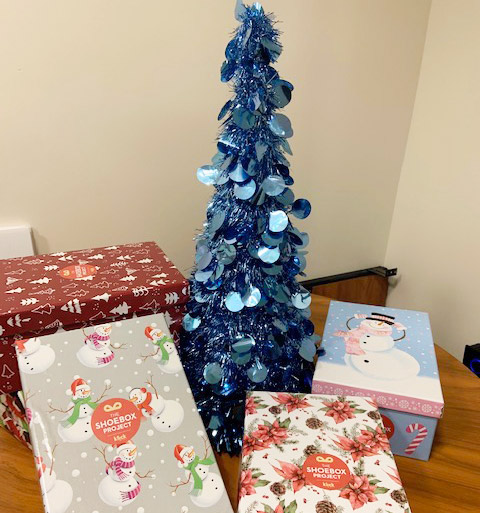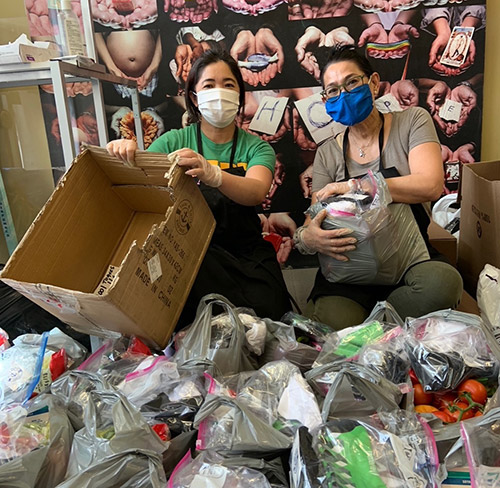While the team at Nellie’s always works extra hard to make the holiday season a special one for our families, it’s truly the generosity of our donor community that helps to make such a difficult time a little bit easier. If you’d like to help us bring the magic of the holidays to families in need this year, here are four ways you can give back:
Donate gift cards: Gift cards are an amazing present for families in the Nellie’s community. These are families who don’t live in our shelter, but they use many of our community programs, such as our Food Program or our Housing supports. Frequently, these families are headed by a single mom doing everything she can to give her kids what they need. Grocery gift cards can help a mom stock their fridge with essentials, or make a nice holiday dinner. Gift cards for stores like Wal-Mart can also help her buy groceries, along with necessities like clothes, diapers, and toiletries.
Donate cash: Your monetary donations help us continue to provide shelter, dignity, and hope to women and children leaving violence, poverty and homelessness. Here are some ways your gift can help us today:
- $35 will help us pay for a taxi to transport a woman and her children away from a violent and life-threatening situation
- $75 will pay for one day’s stay at the shelter, including food
- $150 will provide counselling and support services for a woman and her children for one month, giving them a chance at a brighter tomorrow
Sponsor a family: Every holiday season at Nellie’s, more than 50 families in our community join our “Sponsor a Family” program. As a sponsor, we ask you to purchase a small gift for each child, a small gift for the mom, and a grocery gift card to help her get a nice dinner on the table. This is approximately a $250 commitment per family of three (a mom and two kids). When donors are assigned a family, they’ll be given a list of likes, the age and gender of each child, as well as their clothing sizes, to help give them ideas of what to buy.
Give a gift of securities: One of the most financially sound ways to support Nellie’s this holiday season is with a gift of securities (stocks, bonds, or mutual funds). By donating publicly traded securities, you eliminate the capital gains tax that you would have to pay if you instead sold the securities and then donated the proceeds. You’ll also receive a charitable tax receipt for your donation. Consult your financial advisor if you’d like to consider this donation option.
No matter how you choose to donate to Nellie’s this holiday season, you’ll help us spread joy and support to families when they need it the most. Thank you for your generous support, and happy holidays!
For more information on donating to Nellie’s, please visit our Donate page or email fundraising@nellies.org






